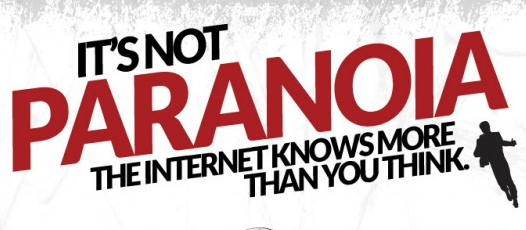
The Social Media Investigator award is sponsored by LexisNexis.
The ConnectedCOPS Social Media Investigator Award is generously sponsored by LexisNexis. The finalists in this category are doing extraordinary work with open source investigations. They demonstrate a consistent, methodical, persistent and high quality approach. The judges were very impressed with the quality of nominations in this category. Mary Craige is the Marketing Manager for LexisNexis’ Law Enforcement Division. She said “This year’s nominees for the ConnectedCOPS Top Social Media Investigator illustrate the importance of law enforcement’s ability to find, mine and analyze activity in social media. All of these nominees show their understanding of the medium and their ability to adapt their investigations to how the social media landscape is changing.”
ConnectedCOPS Social Media Investigator
This award is given to the sworn law enforcement investigator at any worldwide law enforcement agency who, as a practitioner, has used social media successfully to solve crime. The Social Media Investigator practices appropriate security measures and supervision in his/her investigations.
The three finalists are:
Jeff Bangild Detective Bangild works for the Toronto Police Service. He is highly respected for his work involving the Internet and social media especially in cases of criminal harassment. Bangild has made ground breaking headway in obtaining reasonable and probable grounds for arrest and charges with reasonable prospect for conviction by using social media investigative techniques that don’t require a forensic analysis of a suspect’s computer. Complainants who deal with him have the utmost respect for his demeanour and tenacity to get the job done, often when other police officers haven’t a clue where to start to investigate. Bangild is currently part of a team at Toronto Police Service designing policy to facilitate community and officer safety better using social media tools.
Eric Draeger Officer Draeger is with the Milwaukee Police Department. His work is primarily in the area of juvenile gang crime. Draeger’s work is said to have made a significant impact upon the safety of the Milwaukee area. His work has led to preventive measures taken by law enforcement to intercept threats of widespread violence during city events. In a recent adult trial Officer Draeger was able to take 31,000 pages of discovery from Facebook and develop a way to insert the evidence into a searchable database. His analysis lead him to be able to pinpoint that the defendant attempted to purchase a handgun the day before armed robberies had occurred. Draeger is also able to explain the intricacies of his social media investigative work to non-technical people and gain convictions in court.
Sam Palmer Detective Palmer is with the Phoenix Police Department. He is highly regarded in the law enforcement community and is regularly called upon to share his knowledge at law enforcement events. In several cases, when given little information, Palmer was able to identify the suspects with analysis of social media and employing techniques to connect the dots. One case involved threats against a high profile person in Phoenix. The other involved a series of robberies. With only nicknames, was able to identify five subjects and provide detectives with thorough profiles on each. In addition to assisting with on-going criminal investigations, Detective Palmer spends time educating youth so they are smarter and less vulnerable when they post information on social media sites.
Finalists in the other awards categories will be announced throughout the next several days on this blog. Check back to see the finalists for Social Media Event Management on Monday. Winners will be announced September 25th at The SMILE Conference™ in Omaha, Nebraska.
The ConnectedCOPS Awards were created by LAwS Communications with the intent of recognizing the good work being done by individual officers and law enforcement agencies with social media. The international law enforcement community will be considered for these awards. Any officer or agency anywhere in the world is eligible.
 Cheers to the upcoming SMILE Conference, September 24-26, 2013. To celebrate the SMILE Conference coming to Omaha, the Omaha Convention and Visitors Bureau is hosting a special giveaway. Each week from now until August 19th a SMILE registrant will win a gift card to one of Omaha’s popular watering holes. Register for the 2013 SMILE Conference and you’re automatically entered for a chance to win one of the following:
Cheers to the upcoming SMILE Conference, September 24-26, 2013. To celebrate the SMILE Conference coming to Omaha, the Omaha Convention and Visitors Bureau is hosting a special giveaway. Each week from now until August 19th a SMILE registrant will win a gift card to one of Omaha’s popular watering holes. Register for the 2013 SMILE Conference and you’re automatically entered for a chance to win one of the following:










